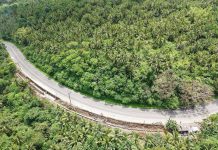TACLOBAN CITY – The Philippine Fiber Industry Development Authority (PhilFIDA) in the region is aiming to double the production of abaca planting materials with the commitment of the new administration to embark on massive rehabilitation of abaca farms infested by diseases. PhilFIDA Regional Director Wilardo Sinahon said they are mapping out plans on how to maximize the production of disease-free planting materials from two existing tissue culture laboratories in the region. These are located in a Department of Agriculture compound in Abuyog, Leyte and National Abaca Research Center at the Visayas State University (VSU), Baybay City. “Despite high demands, both laboratories currently produce half of their maximum capacity due to lack of manpower and limited budget,” Sinahon said. The Abuyog and VSU facilities are capable of producing 10,000 and 20,000 plantlets monthly, respectively.
“The concern now is the source of clean planting materials. The plan is to get from other provinces, but we have to check for the sources to ensure that planting materials are disease-free,” Sinahon added. Description: https://scontent.fceb1-1.fna.fbcdn.net/v/t1.0-1/c5.0.32.32/p32x32/34990_10151329792611447_357988730_n.jpg?oh=d743f14cfa97ae11c1154212e9c65374&oe=585D94BB Department of Agriculture Secretary Emmanuel Piñol recently announced a P100 million funding for the revival of abaca industry this year in Sogod, Southern Leyte alone.
Part of the funds will be for the enhanced production of plantlets in existing tissue culture laboratories and make the similar facility inside the Southern Leyte State University operational. Out of the P100 million, P50 million is allotted for the immediate procurement of planting materials, which will cover about 1,500 hectares. The plan is to immediately assist the farmers by buying planting materials from them using the local abaca variety, which is thriving well in the area. In addition to free planting materials, the national government will also provide organic fertilizers to recipient farmers in Sogod. Sinahon is very optimistic that with the P100 million budget, Sogod will be able to restore its production in the next few years. “The fresh funding support for this town is 14 times more than the current P7 million abaca disease eradication budget for the region’s six provinces,” he added. Sogod is the top abaca producing town in Southern Leyte with about 6,000 hectares devoted to abaca cultivation. About 2,000 of 6,000 abaca farmers in the province are based in Sogod.
(SARWELL Q. MENIANO)



